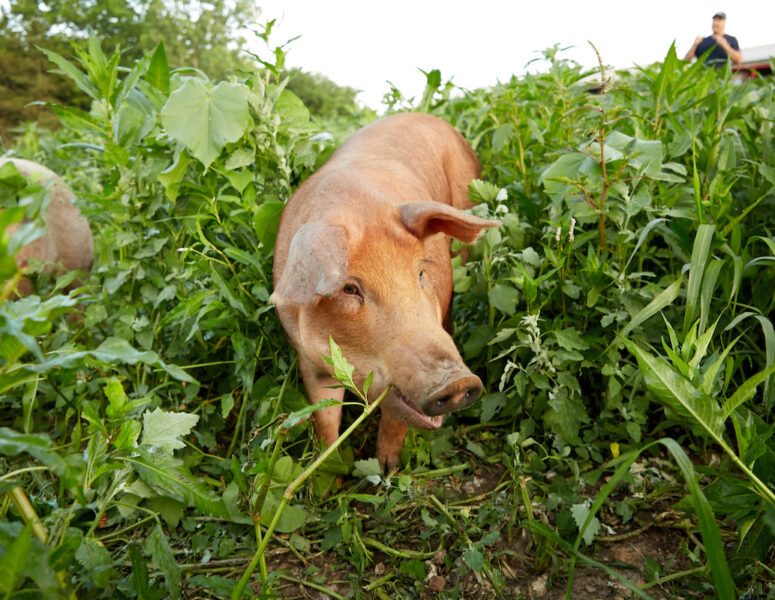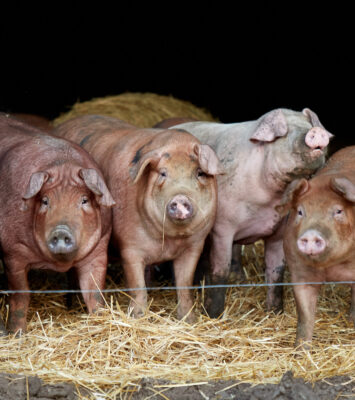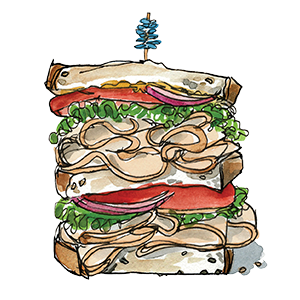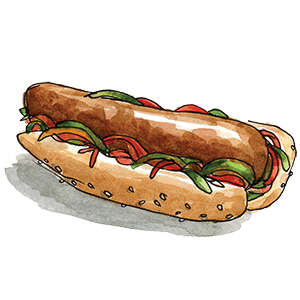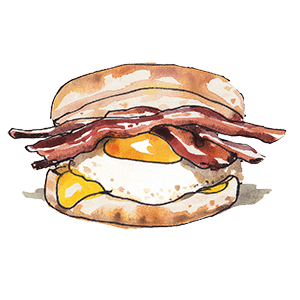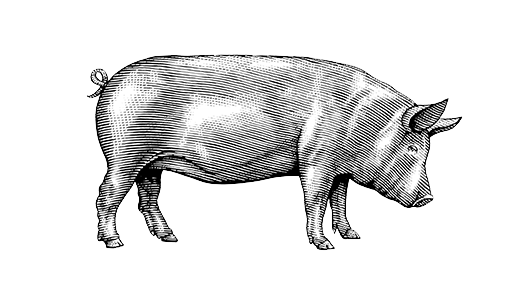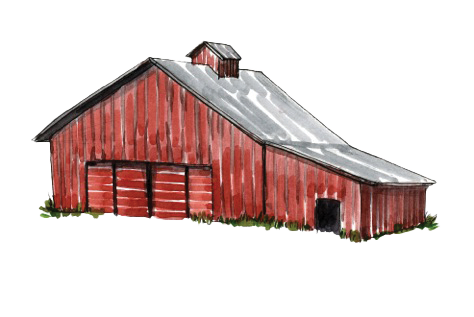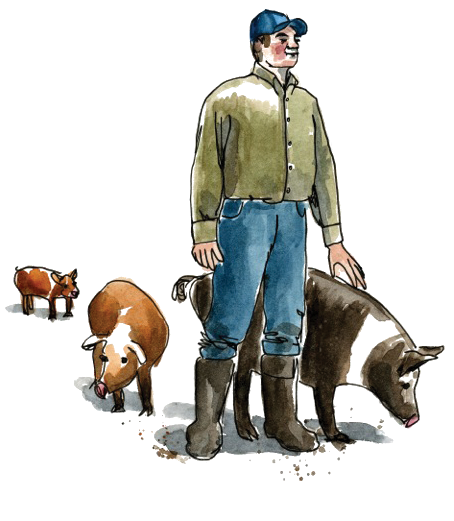Good news! A challenge to Prop 12 has been rejected by the Supreme Court. So what does that mean for consumers and businesses? Let’s dive in.
Proposition 12 explained
First off, a little refresher. Also known as the Farm Animal Confinement Initiative, Proposition 12 is a law passed by California voters in 2018 that prohibits the sale of eggs, veal or pork that has been confined in a cruel manner (as defined by the policy).
For pork, it states that pigs be raised with at least 24 square feet of space per pig. This is especially noteworthy because of a widespread practice in the commodity pork industry: that of confining pregnant sows to gestation crates for much of their lives.
Humane raising was one of our founding principles here at True Story, and remains so to this day. Our network of family farmers have never and will never use crates or cages, regardless of the law. And while Prop 12 technically only applies to fresh pork, and not products like ham or sausages, we meet and exceed its standards for all our products.
For more background on the law, take a look at our first blog post on Prop 12, California’s Proposition 12 Explained.
Who challenged Prop 12 California, and why?
The challenge to Prop 12 was brought by large pork producers, who oppose the law because it means expensive changes to their operations. They argued that, under a statute known as the Dormant Commerce Clause, Prop 12 represents an overreach of Califormia’s power to regulate interstate commerce, as most of the pork consumed in California is purchased from other states.
After repeated rejected challenges and appeals, the case made it all the way up to the U.S. Supreme Court. In a 5-4 decision, the Court ruled that the California law is fully constitutional.
“Companies that choose to sell products in various States must normally comply with the laws of those various States,” wrote Justice Gorsuch in the majority opinion. “While the Constitution addresses many weighty issues, the type of pork chops California merchants may sell is not on that list.”
What does Prop 12 mean for animal welfare?
Prop 12 represents the most substantial piece of animal welfare legislation to date. California consumes 13% of the country’s pork. That’s a lot of meat. Not only that: we think Prop 12 is just the beginning of a new era of animal welfare laws.
Matthew Gatto, our co-founder and head of farm partnerships, recently spoke to Progressive Grocer magazine about Prop 12. “The consumers there are very interested in animal welfare and there is growing awareness,” he noted, adding, “At the end of the day, it’s up to states and consumers and what they value. If animal welfare is important to them, I see it moving in that direction.”
Will Proposition 12 California drive up the price of pork?
The short answer is that it’s possible. It’s hard to say exactly how Prop 12 will affect the price of pork for consumers, but as with any big change, there are likely going to be reverberations.
It goes without saying that many large pork producers are unhappy with the Supreme Court’s decision. Some even claim that it’s actually safer for pregnant pigs to be housed in crates where they don’t have room to turn around.
The fact is, changing their existing, efficiency-driven hog farms will be expensive. But these costly conversions wouldn’t be necessary if the industry at large raised their animals with quality of life in mind over cost. We vow to always raise our animals with respect and Room to Roam at True Story—not because it’s the easy or cheap way, but because it’s the right way.
What raised with respect means to us
So what does “raised with respect” mean to us at True Story?
- Room to Roam: No crates or cages, and plenty of space to move around
- Raised in a low-stress environment that promotes natural behavior
- Outdoor access
- 3rd party certified for animal welfare
That applies not just to our pork, but also our beef, chicken, and turkey. In the words of our co-founder Matthew Gatto: “It’s something we have been behind since we started 14 years ago. It was about partnering with farmers and ranchers who were raising animals with that animal welfare aspect.”
Learn more about our practices and our clean ingredient promise here, and feel free to contact us with any questions!
